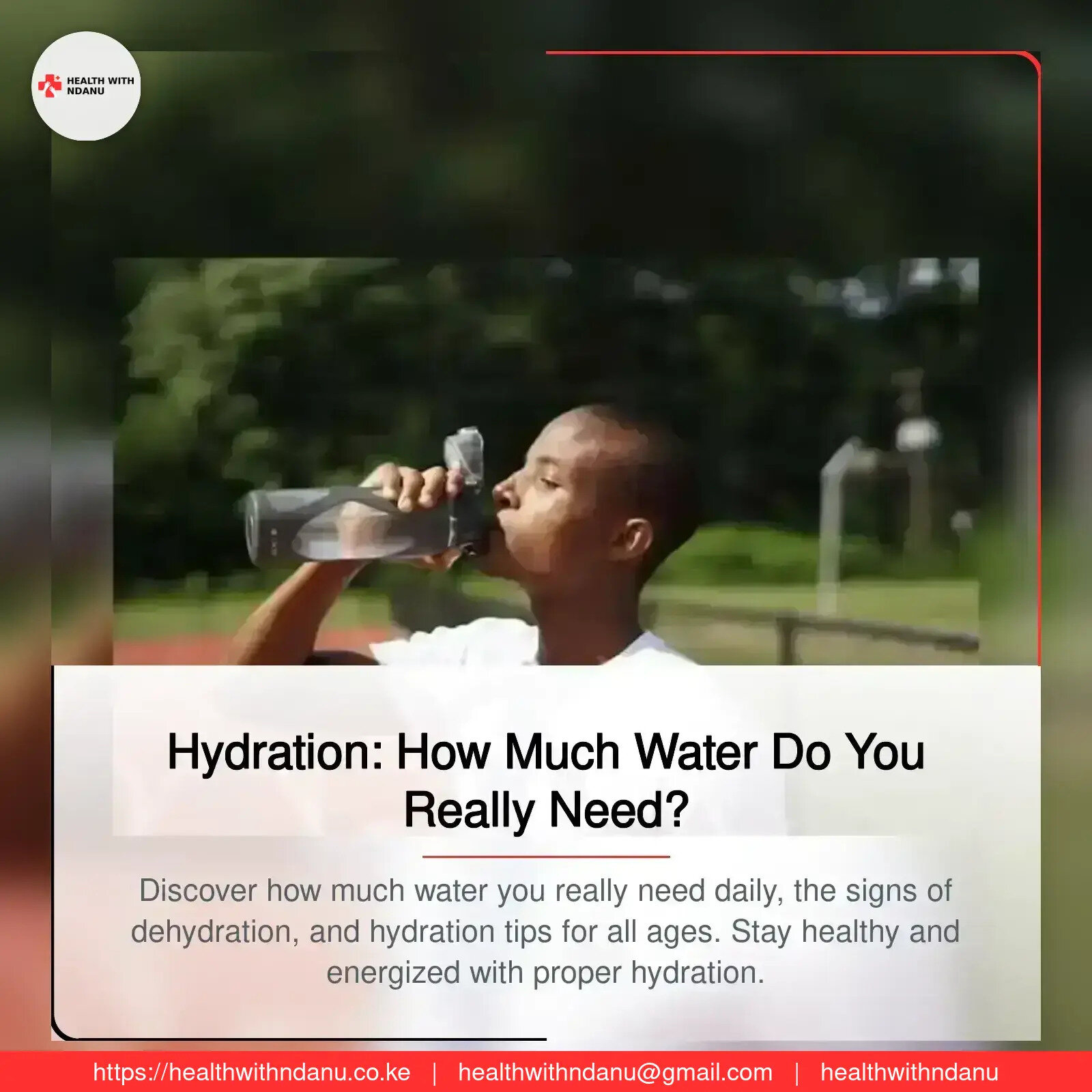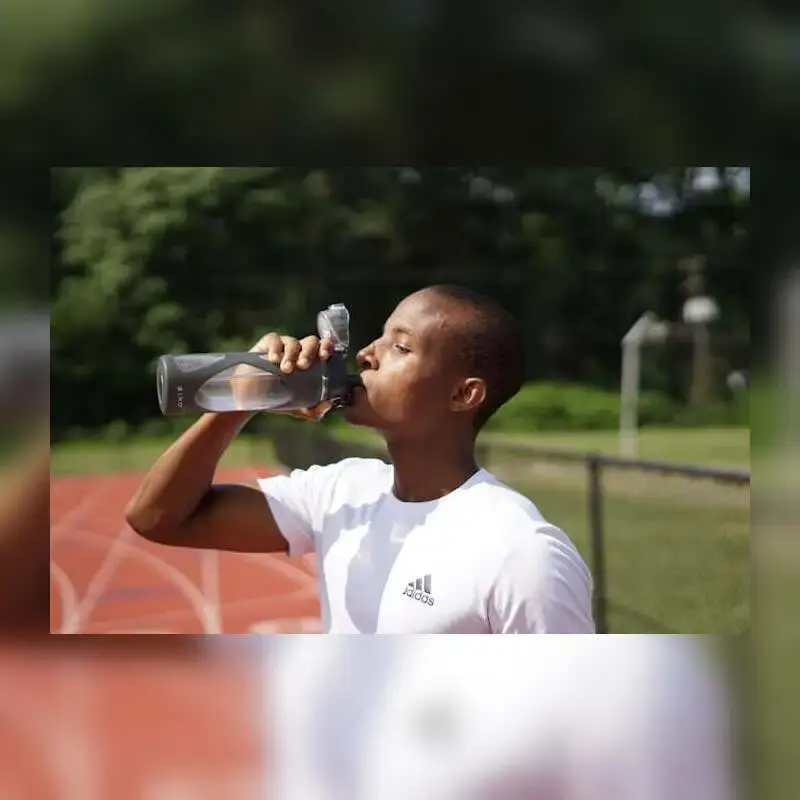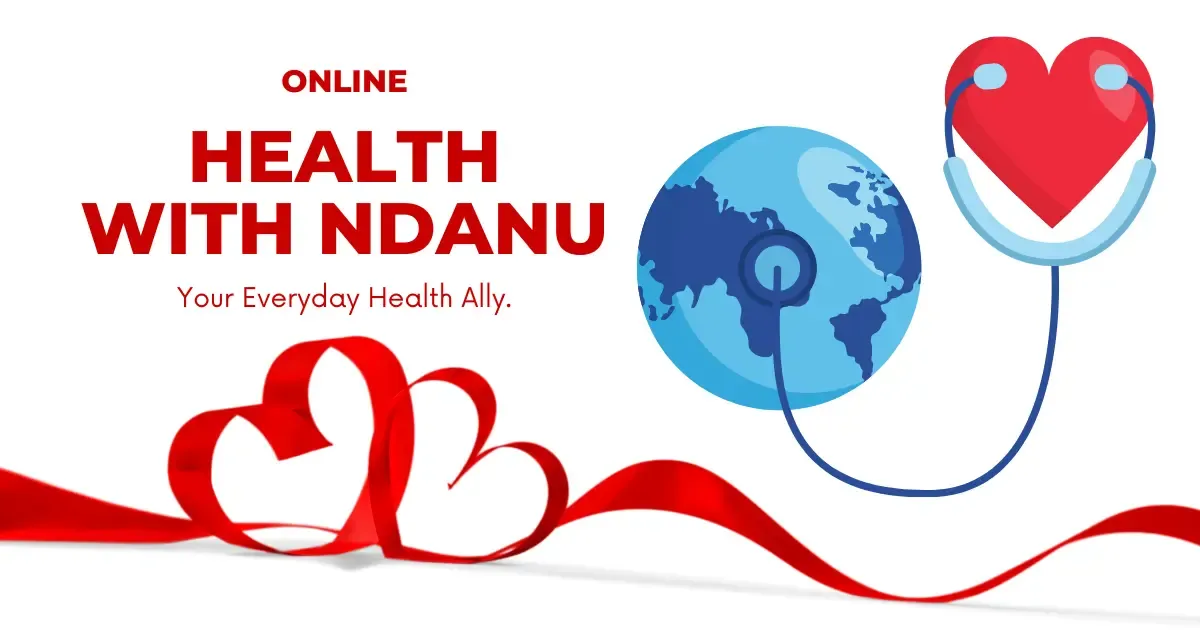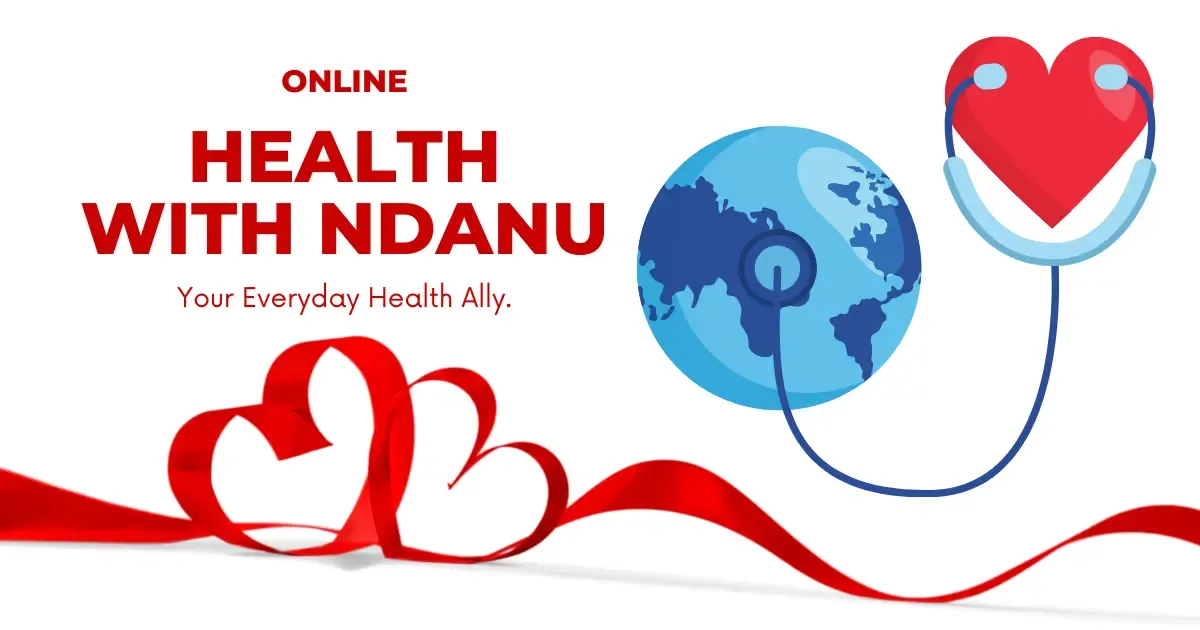Hydration: How Much Water Do You Really Need?
- by Diana Ndanu
- 09 January, 2025
- 0 Comments
- 6 Mins



Introduction
Staying hydrated is essential for our health, but how much water do we actually need? Many of us have heard the “eight glasses a day” rule, but hydration is more nuanced than that. Your water needs depend on various factors, such as age, activity level, and climate. Let’s explore the importance of hydration, how to determine your water needs, and tips to stay hydrated.
Why is Hydration Important?
Water is vital for almost every function in your body. It:
- Regulates Body Temperature: Sweating helps cool your body during exercise or hot weather.
- Supports Digestion: Water aids in breaking down food and nutrient absorption.
- Boosts Energy Levels: Dehydration can lead to fatigue and sluggishness.
- Maintains Joint Health: It lubricates joints, reducing friction and pain.
- Promotes Skin Health: Proper hydration helps your skin stay supple and glowing.
- Detoxifies the Body: Water flushes out toxins through urine and sweat.
Even mild dehydration can cause headaches, dizziness, and a lack of focus. Severe dehydration can lead to more serious health issues, such as kidney stones, heatstroke, or even organ failure.
How Much Water Should You Drink Daily?
The amount of water you need depends on factors like age, weight, activity level, and environment. Here’s a general guideline:
- Adults: The National Academies of Sciences recommends about 3.7 liters (125 ounces) for men and 2.7 liters (91 ounces) for women daily, including water from food and beverages.
- Children: Water needs vary by age. For instance, children aged 4-8 need around 5 cups (1.2 liters) per day, while teens may require more.
- Pregnant and Breastfeeding Women: Extra water is needed—around 3 liters (101 ounces) during pregnancy and 3.8 liters (128 ounces) while breastfeeding.
- Active Individuals: Athletes or those who exercise regularly may need more water to replenish what’s lost through sweat.
Factors That Affect Your Hydration Needs
1. Activity Level: The more you move, the more you sweat, and the more water you need to replace.
2. Climate: Hot or humid environments increase your water requirements.
3. Diet: High-sodium or protein-rich diets may increase your need for water.
4. Health Conditions: Illnesses like fever, diarrhea, or urinary infections can lead to dehydration, requiring increased water intake.
5. Age: Older adults may have a reduced sense of thirst and need to be mindful of staying hydrated.
Signs You’re Not Drinking Enough Water
How do you know if you’re dehydrated? Look out for these signs:
- Dry mouth or lips.
- Dark yellow or amber-colored urine.
- Fatigue or sluggishness.
- Headaches or dizziness.
- Constipation.
- Confusion or difficulty concentrating.
If you notice these symptoms, it’s time to drink more water!
Tips to Stay Hydrated
Staying hydrated doesn’t have to be complicated. Here are some practical tips to help you meet your water needs:
1. Carry a Water Bottle: Always have a reusable bottle handy to sip throughout the day.
2. Flavor Your Water: Add slices of lemon, cucumber, or berries to make it more appealing.
3. Set Reminders: Use a phone app or alarm to remind you to drink water.
4. Eat Water-Rich Foods: Fruits like watermelon, oranges, and cucumbers are great for hydration.
5. Drink Before You’re Thirsty: Thirst is often a late sign of dehydration.
6. Hydrate Before and After Exercise: Drink water before, during, and after physical activities.
7. Monitor Urine Color: Pale yellow urine is a good indicator of proper hydration.
8. Start Your Day with Water: Kickstart your morning with a glass of water.
The Role of Beverages and Food in Hydration
While plain water is the best hydrator, other fluids and foods also contribute to your daily intake:
- Herbal Teas: These are hydrating and often caffeine-free.
- Milk: A great source of hydration and nutrients like calcium.
- Soups and Broths: Especially helpful during colder months.
- Juices: Provide hydration but should be consumed in moderation due to sugar content.
- Caffeinated drinks like coffee and tea, while mildly dehydrating, can still contribute to your fluid intake in moderation.
Debunking Hydration Myths
1. Myth: You need 8 glasses of water a day.
Truth: Your needs depend on factors like age, activity, and climate.
2. Myth: Coffee and tea dehydrate you.
Truth: While caffeine is a mild diuretic, these beverages still contribute to hydration.
3. Myth: You can only hydrate with water.
Truth: Foods and other beverages also help meet your hydration needs.
Can You Drink Too Much Water?
Yes, overhydration is a condition called hyponatremia, where the sodium levels in your blood become dangerously low. This is rare but can occur if you drink excessive amounts of water in a short period, especially during intense physical activities.
Hydration for Special Groups
1. Children: Encourage kids to drink water regularly, especially during playtime or sports. Offer water-rich snacks like fruits and yogurt.
2. Seniors: Older adults may not feel thirsty often, so they should consciously sip water throughout the day.
3. Athletes: For those engaged in intense workouts, sports drinks with electrolytes can help replenish lost minerals.
Benefits of Staying Hydrated
The benefits of proper hydration are immense:
- Improved mood and focus.
- Better digestion and regular bowel movements.
- Healthier skin and reduced dryness.
- Optimal muscle performance.
- Lower risk of kidney stones.
FAQs About Hydration
1. How can I tell if I’m drinking enough water?
Check the color of your urine—pale yellow is a good indicator of proper hydration.
2. Can I hydrate with other drinks?
Yes, but opt for water-rich, low-sugar beverages and limit caffeine and alcohol.
3. Does hydration affect weight loss?
Yes, staying hydrated can boost metabolism and curb appetite, aiding in weight management.
4. How does hydration impact mental health?
Dehydration can lead to fatigue and difficulty concentrating, affecting your mood and productivity.
Final Thoughts
Hydration is a cornerstone of good health. By understanding your body’s water needs and adopting healthy hydration habits, you can boost your energy levels, improve your focus, and enhance your overall well-being.
Remember, staying hydrated isn’t just about drinking water—it’s about making conscious choices to support your body’s needs. Start today, and your body will thank you!
Got Your Own Experience? Share with us
Popular Categories
Most Visited Blogs
Daily Newsletter
Get all the top stories from Blogs to keep track.



